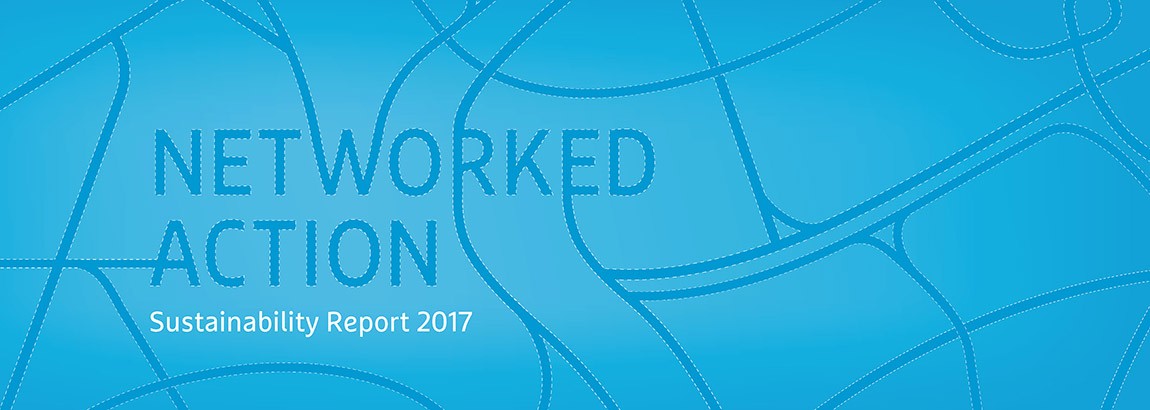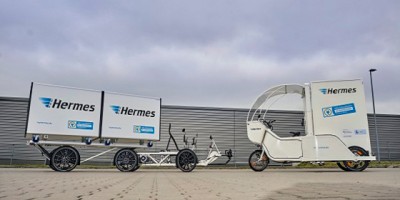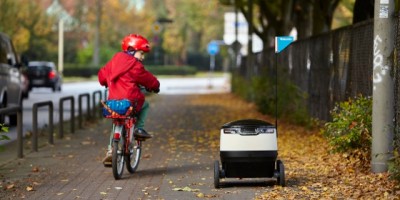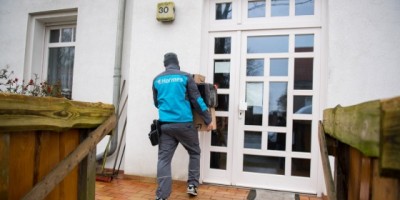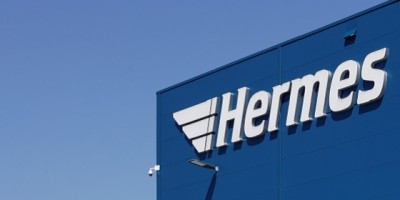Our attitude and approach
Focus on new technologies and sustainable business models
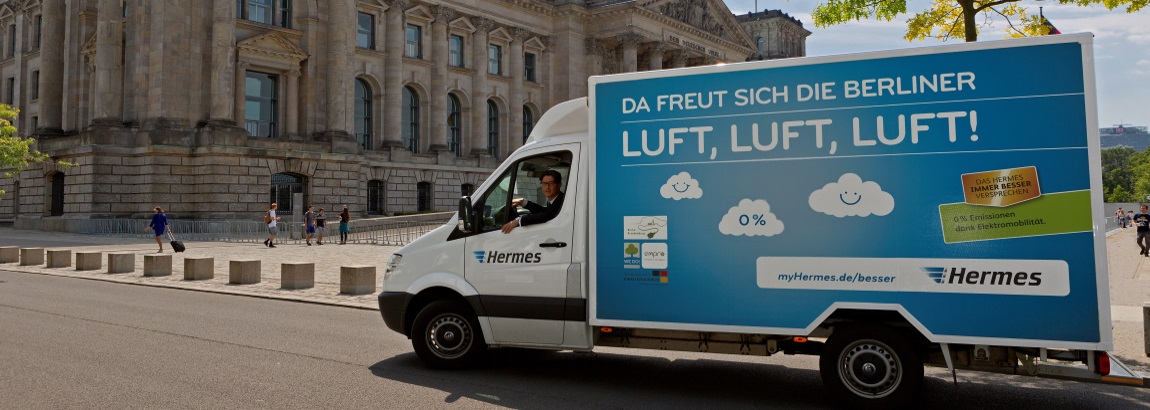
Shipment volumes are continuing to grow rapidly. Over three billion parcels have been picked up or dropped off in Germany alone – primarily in conurbations. Given the corresponding increase in traffic, inner-city areas are feeling the impact of noise pollution and the poor quality of the air. Cities and the logistics industry are therefore being called upon to develop and establish effective, sustainable solutions – and in doing so, to satisfy the growing demands of customers.
One of customers' key demands is for deliveries that are both speedy and flexible. In facing up to these challenges, particularly for customer-centric, convenient services, Hermes is drawing on new, future-oriented technologies and sustainable business models. Hermes is thus also supporting the climate protection goals of the European Commission. A binding target by 2030 is to reduce greenhouse gas emissions within the EU by at least 40% compared to 1990 levels.
Zero-emission parcel deliveries by 2025
The impact of pollutants is felt in inter-continental procurement and most strongly in distribution logistics, i.e. in line hauls and in the final mile to the customer. In contrast to procurement logistics, where we hardly have any influence on optimising transport by air or sea, in distribution logistics we can exert direct influence on fleet composition and on line haul and route planning. In procurement logistics, we are involved in working groups and initiatives for low-emission procurement. For example, Hermes is a member of the Clean Cargo Working Group and is involved in the ‘Stiftung 2°- Deutsche Unternehmer für Klimaschutz’ (the foundation German CEOs for Climate Protection). This offers direct opportunities for action, which are explained in more detail below.
A key aim of Hermes Germany is to achieve zero-emission deliveries in the downtown areas of the 80 largest cities in Germany by 2025. This is intended to make an effective contribution to climate protection by avoiding emissions caused by propulsion drives (e.g. fine dust and NOx) and also by causing significantly less noise. Our Urban Blue programme coordinates activities involved in achieving this aim and is making a substantial contribution to improving the quality of life in urban areas.
In doing so, we are pursuing two approaches:
- Innovative logistics concepts that satisfy customer wishes for speedy and flexible deliveries on the one hand, and that minimize emissions on the other (e.g. e-Cargobikes);
- The deployment of low-emission transport technologies, particularly those promoting e-mobility based on certified, regenerative power for our own fleet and those our contracting partners.
The table below show the individual objectives and projects:
| Aim | Date |
| The continued expansion of the use of alternative drives, particularly in urban areas | Ongoin |
| Conducting an e-mobility pilot project with some 50, in part, pre-production vehicles made by VW and Daimler in a number of large German cities (including Hamburg, Berlin, Frankfurt, Munich, Stuttgart and Hanover) | 2018 |
| Emission-free delivery at Hermes Germany in around 40 German cities through continuous expansion of the use of alternative drives (above all e-mobility, e-cargobikes) | 2020 |
Individual measures are managed as part of the Urban Blue programme.
Other aims:
| Aim | Date |
| To continually increase customer satisfaction (greater customer centricity, by making the last mile more flexible and expanding digitisation, for example) | Ongoing |
| To continually expand Hermes' European ParcelShop network. For Hermes Germany: To increase in the number of ParcelShops in the medium term by 30% to 20,000 drop-off points. | Ongoing 2020 |
